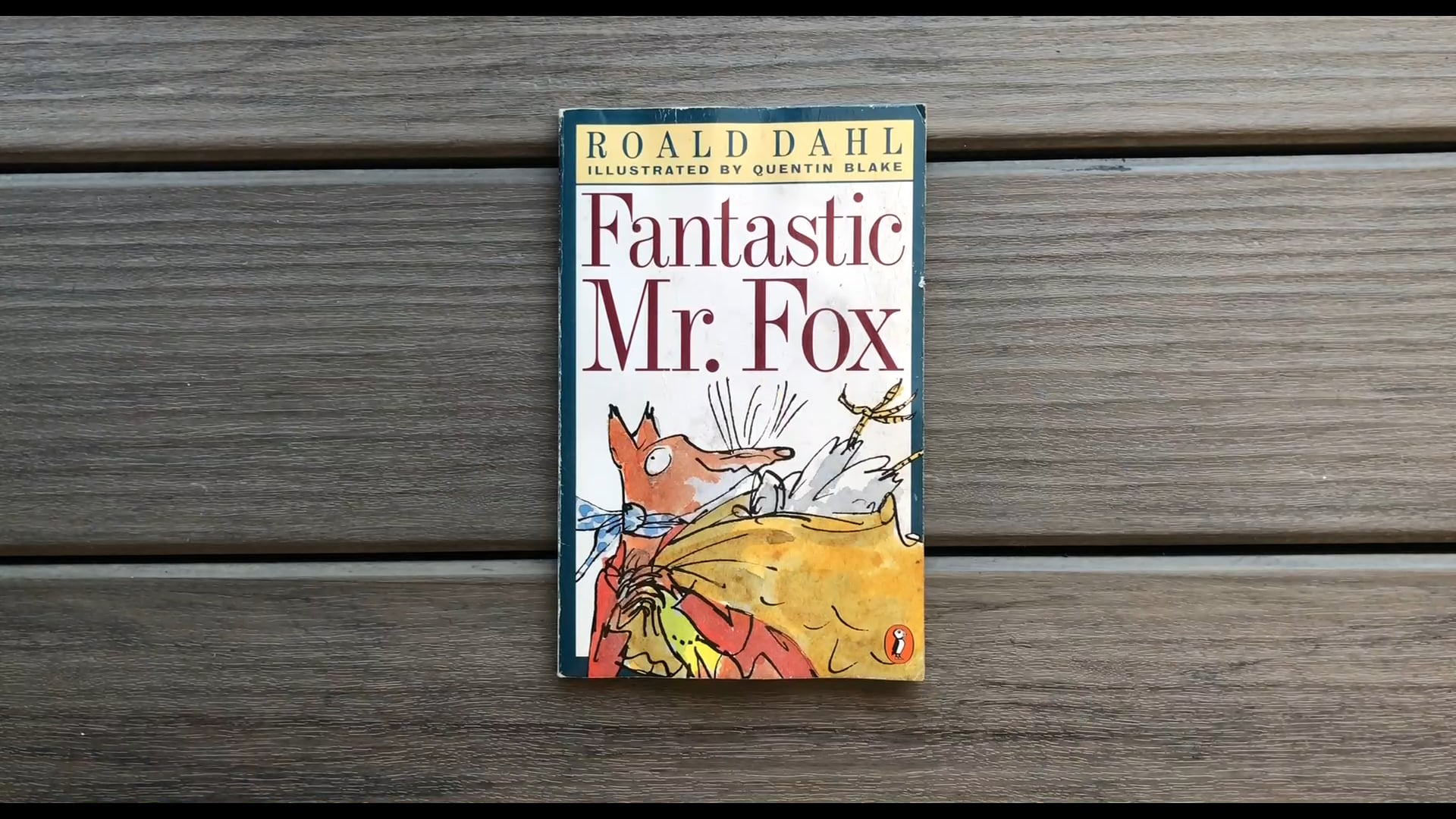“Making Mistakes and Coming of Age in Fantastic Mr. Fox” came about due to my love of adaptations, and particularly adaptations of Roald Dahl’s work. The ways in which Wes Anderson makes this rich source material his own fascinated me. Whitney Dilley argues that “both Dahl and Anderson share a certain sensibility toward how they dramatize the human condition in their art, evoking a childlike sense of both seriousness and whimsy” (155). Yet despite their similarities, there are significant thematic differences between them. This video essay argues that Anderson’s adaptation of Dahl’s Fantastic Mr. Fox moves from a story about fighting outside forces in order to live by one’s own nature, to a story about finding oneself and grappling with one’s own nature. This difference is consistent with the body of work of each, and with Anderson’s unique approach to maturity and coming of age. In Dahl, Mr. Fox’s cunning, clever, and sneaky nature is not questioned. He uses his skills to outwit his enemies, and is declared by his wife “A FANTASTIC FOX” (Dahl 77). In Anderson, Mr. Fox never earns the full title of ‘fantastic’, having to face his mistakes and deal with the tension between his nature and the needs of his community. Adrienne Kertzer points out that the ‘fantastic’ description “is always ironized through the use of quotation marks in the film, including the time when Mr. Fox offers his need to be regarded as ‘the quote- unquote fantastic Mr. Fox’ as an explanation for the mess he has created” (19).
The analysis presented in this video essay is based primarily on several chapters from Whitney Dilley’s book, The Cinema of Wes Anderson: Bringing Nostalgia to Life, as well as Adrienne Kertzer’s “Fidelity, Felicity, and Playing Around in Wes Anderson’s Fantastic Mr. Fox”. More information on the positioning of Anderson as Dahl’s cinematic heir, as mentioned in the video, can be found in Tom Dorey’s “Fantastic Mr Filmmaker: Paratexts and the Positioning of Wes Anderson as Roald Dahl’s Cinematic Heir”.
The choice of a video essay allowed me to present scans from the novel, with emphasis on its illustrations, and thus to position it next to images from Anderson’s adaptation. This video essay deals with thematic questions, but the video format allows Anderson’s unique visual style to stand out even without being explicitly referenced. The editing allowed me to show the connection between similar elements, such as in the comparison between Fantastic Mr. Fox and Moonrise Kingdom.
Bibliography
Dahl, Roald. “Fantastic Mr. Fox, Puffin Books, 1998.
Dilley, Whitney C. “Adaptation and Homage: The World of Roald Dahl and Fantastic Mr. Fox.” The Cinema of Wes Anderson: Bringing Nostalgia to Life, Columbia University Press, 2017, pp. 168-182.
Dilley, Whitney C. “Reconstitution of the “Family” and Construction of Normalized Gender in Moonrise Kingdom.” The Cinema of Wes Anderson: Bringing Nostalgia to Life, Columbia University Press, 2017, pp. 151-167.
Dilley, Whitney C. “’Sic Transit Gloria’: Transgressing the Boundaries of Adolescence in Rushmore.” The Cinema of Wes Anderson: Bringing Nostalgia to Life, Columbia University Press, 2017, pp. 78-96.
Dorey, Tom. “Fantastic Mr Filmmaker: Paratexts and the Positioning of Wes Anderson as Roald Dahl’s Cinematic Heir.” New Review of Film and Television Studies 10.1, 2012, pp. 169-185.
Kertzer, Adrienne. “Fidelity, Felicity, and Playing Around in Wes Anderson’s Fantastic Mr. Fox.” Children’s Literature Association Quarterly 36.1, 2011, pp. 4-24.
Filmography
Charlie and the Chocolate Factory. Directed by Tim Burton, 2005.
Fantastic Mr. Fox. Directed by Wes Anderson, 2009.
Matilda. Directed by Danny DeVito, 1996.
Moonrise Kingdom. Directed by Wes Anderson, 2012.
“Matilda Revolting Children.” Youtube, uploaded by Mark Gentile, https://www.youtube.com/watch?v=MDlQe1a04ZI, Nov. 22 2014.
Rushmore. Directed by Wes Anderson and Owen Wilson, 1998.
The BFG. Directed by Steven Spielberg, 2016.
The Darjeeling Limited. Directed by Wes Anderson, 2007.
The Grand Budapest Hotel. Directed by Wes Anderson, 2014.
The Royal Tenenbaums. Directed by Wes Anderson, 2001.
The Witches. Directed by Nicolas Roeg, 1999.
Likes: 0
Viewed:
source
